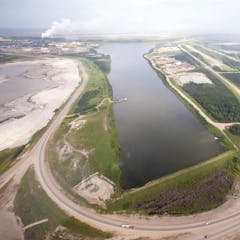
Artikel-artikel mengenai Indigenous rights
Menampilkan 1 - 20 dari 129 artikel

Indigenous people’s concerns and considerations could provide a strong basis for climate litigation in South Africa.

The recent title lands agreement between British Columbia and the Haida Nation is historic and inspiring, but also long overdue in light of decades of rulings by international human rights bodies.

The lessons from Tasmania are clear. Asserting Indigenous rights in Canada can be mutually beneficial for all.

More than six years after Pavel Sulyandziga, an Indigenous activist from Russia, left the country to seek political asylum in the US, he continues to face harassment by the Russian government.

Global human rights is an area where Chinese officials are willing to engage with the international community and could provide a window of opportunity towards further progress in the future.

The father of Khoisan revivalism became a public historian as his academic work met activism.

As detailed in a June 2023 event in Grenoble, France, business schools hold partial responsibility for the longstanding behaviour of multinational corporations (MNCs) in indigenous territories.

A ‘no’ result in the vote could compromise Australia’s moral authority when it seeks to advocate or pressure other states on human rights issues.

Te Pāti Māori was born out of protest. After almost two decades, the party is carving out a political presence beyond its traditional base of support.

A pipeline that has carried Canadian oil and gas across Wisconsin and Michigan for 70 years has become a symbol of fossil fuel politics and a test of local regulatory power.

People across Latin America are demanding greater political participation. Some countries, including Colombia and Chile, have responded by involving citizens in the making of their constitutions.

As toxic water continues to spill from tailings ponds across mining developments, decades of scientific research provides evidence of how wildlife will be affected.

Water sharing arrangements have the potential to enhance water security, but they require strong communication and co-ordination between community leaders in addition to adequate financial support.

If the 2023 referendum fails, it will at least in part be due to the shortcomings and spoiled hopes of 1967.

With less adherence to party politics and a broadly progressive viewpoint, young people will play a key role in the outcome of the Voice to Parliament referendum.

Thousands of demonstrators have descended on Lima amid violent clashes with police. The protest movement could be taking cues from earlier mobilizations in neighboring Bolivia.

As protected and conserved areas increase, an equity-based approach that respects Indigenous rights can help bring the transformative changes we need to halt and reverse biodiversity loss.

Danielle Smith’s grasp of Indigenous issues seems rooted not in genuine allyship and justice but in the appropriation of Indigenous experiences to advance white grievance politics.

A different future will not be possible without reverence, respect, reciprocity and responsibility towards the Earth. On this issue, Indigenous Peoples have a lot to share.

Geographic, cultural and political identity are all part of being Indigenous.
